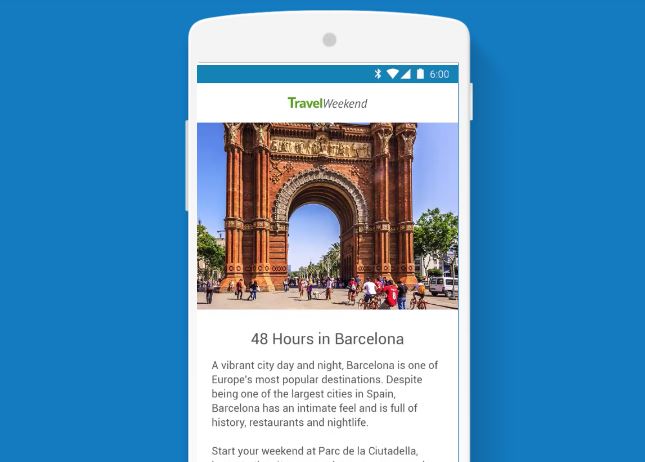Google's 'Accelerated Mobile Pages' To Go Live Early Next Year
Google's Accelerated Mobile Pages (AMP) project will debut early next year with many publishing, advertising and analytics partners on board. AMP is meant to make web pages much leaner for mobile so that they load faster on low-performance devices, such as most smartphones.
AMP is an open source framework that uses a subset of HTML5 features and eliminates all of the things that make pages load much more slowly these days.
Google said that in the six weeks since it announced the AMP project, over 4,500 developers have started following the project on Github. It also announced that ad networks Outbrain, AOL, OpenX, DoubleClick and AdSense will develop ads that are compatible with the AMP requirements. This should mean less annoying ads for readers, and potentially less of a security risk as well, as there won't be any Flash ads.
Major publishers such as the BBC, Sankei, New York Times, News Corp and Washington Post are already on board, and many others have also committed their support to the project. Twitter, Pinterest and WordPress.com were also some of the first sites to adopt the framework. Google has shown how AMP can cut the typical load time of a New York Times article from three seconds to less than half a second, which should help these publishers get new readers and higher engagement for their sites.
Google will also provide a caching service for AMP pages, much like what Facebook is doing with Instant Articles. However, it will be up to the publishers if they want to take advantage of it, as this way they will be sharing that reader data with Google, as well.
Google said that analytics tools from comScore, Adobe Analytics, Parse.ly, Chartbeat, Nielsen and ClickTale, as well as its own Google Analytics service, will also be compatible with AMP pages. However, Google hasn't mentioned whether the tracking tools will be subject to any restrictions, as is the case with ads.
Lately, the advertising and publishing industries have begun to acknowledge that bad ads are pushing readers to use ad-blocking extensions. However, there doesn't seem to be any acknowledgement of over-the-top and privacy-invasive cross-site tracking, which many users also want to avoid with the help of ad-blocking software.
Get Tom's Hardware's best news and in-depth reviews, straight to your inbox.
EFF and services such as Disconnect have tried to put together a list of restrictions for tracking in the new Do Not Track proposal, which might be a good starting point for a discussion on tracking in the advertising industry. These restrictions include not collecting unique identifiers such as cookies, supercookies, or fingerprints, and not retaining any data about readers for more than ten days, unless it's aggregated data.
______________________________________________________________________
Lucian Armasu joined Tom’s Hardware in early 2014. He writes news stories on mobile, chipsets, security, privacy, and anything else that might be of interest to him from the technology world. Outside of Tom’s Hardware, he dreams of becoming an entrepreneur.
You can follow him at @lucian_armasu. Follow us on Facebook, Google+, RSS, Twitter and YouTube.
Lucian Armasu is a Contributing Writer for Tom's Hardware US. He covers software news and the issues surrounding privacy and security.
-
blazorthon If they eliminate all of the things that make web pages load more slowly, that means that they disable all of the trackers and ads because those are some of the biggest contributers to web page load time.Reply -
jasonelmore i think it's to little, and to late.. The majority of users are moving to adblockers and a bunch of promises isn't going to get them to un-install the adblocker.Reply
Websites are just going to have to find new ways to monetize. Systems like Patrion are the only decent solution i see so far. -
rantoc Yeah,. when 90% of the page load times is due to adds and slow tracking tech - I will use an add blocker and a script blocker.Reply
Try the Firefox privacy window mode and see the huge difference and better combine that with add block its about 10x faster (at least on a high speed network (surfing on a 1gb full duplex))

